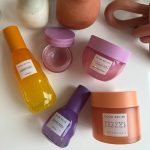The good news is you can hold an Easter egg hunt, but make sure you don’t share the spoils with others if you want to reduce the spread of the virus.However, if you are symptomatic or a close contact of someone who has the virus, taking part in an egg hunt is not advisable.The chief medical officer for the Government’s Healthdirect information site Dr Nirvana Luckraj is also urging Australians to hold Easter celebrations outside if possible to reduce the spread of the virus.“Closed, crowded environments can increase the risk of spreading Covid-19,” she said.And she advised Australians to wear a mask if they are around elderly relatives or other people at high risk from the virus.“It’s a good idea to wear a mask at a gathering if you are immunocompromised or if you are meeting with someone who is at risk,” Dr Luckraj said.“Masks have been proven to increase protection, together with other simple precautions such as physical distancing, cleaning your hands and coughing or sneezing into an elbow.” Any mask provides some form of protection but the best masks are P2 or N95 masks which filter out very fine particles, she said. It is also a good idea to do a Rapid Antigen Test ahead of attending a large family gathering.“It’s a good idea to take a rapid antigen test before a big gathering, even if you don’t have symptoms. RATs can detect the virus before you show any symptoms,” Dr Luckraj said.“Knowing your result before you go can help avoid spreading the virus to your nearest and dearest.”Almost 78,000 Australians have tested positive for Covid in the last week as Omicron BA. 2 continues to sweep through the community.Healthdirect is a government run national public health information and advice service and is the leading agency for Covid-19 information in Australia.If you need advice on Covid symptoms or treatments the service’s website and app have up to date public health information. “We know that during the holidays, it’s easy to become complacent and to fall back into old habits. We must remember that Covid-19 is highly transmissible and taking those essential precautions around those we love is an easy way to help avoid the spread of the virus,” Dr Luckraj said.Dr Luckrai provided the following essential tips for Easter: •Ensure you’re up to date with your COVID-19 vaccinations and booster shots •Take precautionary rapid antigen test before attending gatherings to detect any potential infection •Spend time outdoors in gatherings •Avoid sharing plates, glasses or cutlery •Keep hand sanitiser handy •Stay home if you feel unwell When it comes to travel — both locally and overseas — there are specific tips for Australians to minimise risk of infection:•Get vaccinated (and receive your booster shots) •Wear a mask throughout crowded areas •Avoid touching your face •Clean your hands often Meanwhile, Dr Luckraj answers to the top questions about having a Covidsafe Easter:Should we be wearing masks when talking to relatives? We encourage everyone to enjoy their upcoming celebrations and gatherings safely this autumn. Closed, crowded environments can increase the risk of spreading COVID-19. If you have any concerns, masks have been proven to increase protection, together with other simple precautions such as physical distancing, cleaning your hands and coughing or sneezing into an elbow.It’s a good idea to wear a mask at a gathering if you are immunocompromised or if you are meeting with someone who is at risk. If you feel the need to continue to wear a mask for your own protection, or to protect someone close to you, you should do so.If so, what’s the best/safest mask to wear? (There’s been discussions in the media stating the P2 masks best protects people from Covid – is this true?)There are different types of masks available, including surgical and cloth masks which can prevent the spread of infection by minimising the spread of droplets when worn correctly. It’s important to remember that any mask is better than wearing no mask in high-risk environments. While all masks and respirators provide some level of protection, properly fitting respirators provide the highest level of protection. Disposable P2/N95 face masks (also known as P2/N95 respirators) are able to filter out very fine particles from the air when worn correctly. Wearing a highly protective mask or respirator may be most important for certain higher risk situations such as in a healthcare setting, or by some people at increased risk for severe disease.If you’re wearing a mask, wear it correctly (over your mouth and nose) and you need to have clean hands when putting it on or removing it. Should all members take a RAT test before attending the event? It’s a good idea to take a rapid antigen test before a big gathering, even if you don’t have symptoms. RATs can detect the virus before you show any symptoms. Knowing your result before you go can help avoid spreading the virus to your nearest and dearest. Depending on the local restrictions, the business or a host may be able to enforce their requirement for this, but if you have any concerns about the health of your friends or family, it’s always good reassurance.If you have any symptoms, you should take a RAT or PCR and stay at home – with the coming winter season, there are other viruses such as the cold and flu about which at risk populations are more susceptible to.How important is hand washing and social distancing with your family members? Good hand hygiene and social distancing is recommended no matter who, outside of your live-in immediate family, you are interacting with. This helps protect both you and them if either one of you have Covid or the flu, but are not symptomatic. It’s especially important if you or a loved one is immunocompromised.How do Australians best go about seeing elderly relatives? If you are concerned about seeing an elderly relative, it is best practice to take a RAT beforehand for peace of mind. For those at risk, we also recommend you wear a mask and maintain a safe 1.5-metre distance. You might also choose to meet outdoors rather than indoors for a safer environment. If you have any cold, flu or Covid-19 symptoms, we encourage all Australians to stay at home to protect their loved ones.Should celebrations be held indoors or outdoors? If you can, and if the weather allows, you should consider holding your celebrations outdoors. Gatherings are more Covid-19 safe if they are held outdoors as this allows for better air circulation and therefore minimised transmission. Should Easter egg hunts be on this year? It’s important that anyone who is symptomatic or may be a close contact does not attend events with vulnerable persons. That said, it’s important for Australians young and old to enjoy the festivities. The Easter egg hunts can go ahead, with some simple measures to ensure everyone is safe, including maintaining good hand hygiene and avoiding sharing food. What should I do if going to airport?You must have a fitted face mask on at all times at the airport and masks are still mandatory on all flights, except when eating and drinking.
Powered by WPeMatico






